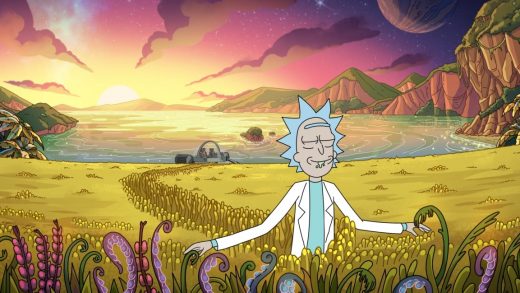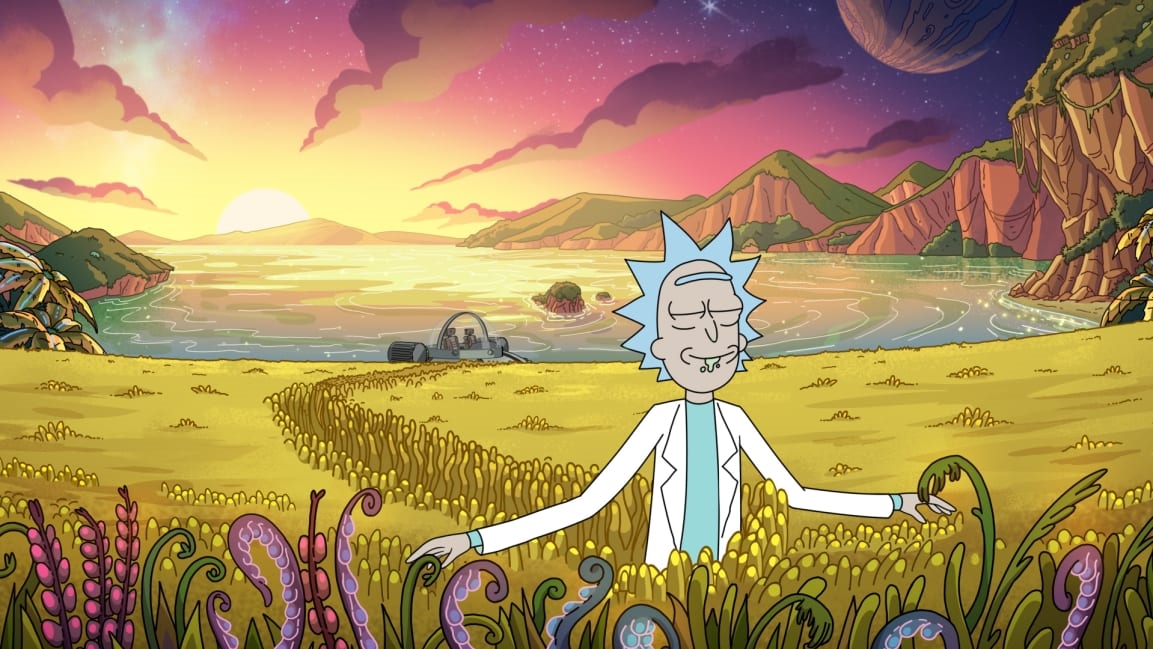It’s time to forgive ‘Rick and Morty’ for its toxic fandom
To the uninitiated, Rick and Morty offers plenty of reasons to stay uninitiated.
But those reasons are bogus.
I first walked into Adult Swim’s sci-fi comedy minefield of mindfuckery in the middle of its second season. By then, the show had already become a word-of-mouth sensation. People talked about it as an inevitability: “Have you seen Rick and Morty yet?” And sure enough, after I ingested enough to appreciate its consistency, I thought of several people I either wanted to recommend Rick and Morty to or talk with about it.
Somewhere along the line, though, the conversation around the show shifted. The wave of hype that hoisted it into the cultural zeitgeist came crashing down, and the word of mouth now centered on its apparent toxicity. By late 2017, being a Rick and Morty fan was its own special pejorative. A friend told me that her terrible Tinder date had been a real “Rick and Morty kind of guy,” and I a) knew exactly what she meant and b) knew not to defend the show at that moment.
But I’m ready to defend it now.
Back to the future
Here’s a little history about this futuristic cartoon. Rick and Morty started as a short-form goof on the central relationship in Back to the Future—”Rick and Morty,” you’ll notice, sounds kinda like “Doc and Marty”—which remains inexplicably unexplained throughout that entire trilogy. Eventually, creator Justin Roiland teamed up with Community’s mad genius Dan Harmon and transformed the premise into what the show became: a series of epic adventures between the smartest sociopathic pervert in the multiverse and his gawky grandson.
The show is as joke-dense as 30 Rock, with knotty plots that riff on legendary sci-fi and horror concepts—either honoring them or destroying their threadbare logic, sometimes doing both at the same time. After its third season earned the highest ratings in Adult Swim’s history and became TV’s #1 comedy in its demo, the network renewed it for a staggering 70 episodes last May. (Its first three seasons combined produced 31 episodes in total.)
By then, however, the damage had already been done.
The Szechuan sauce incident
It’s hard to pinpoint exactly when the show’s reputation turned, but the negativity hit critical mass around the time of the unfortunate Szechuan sauce incident. The tangy, limited-time dipper from McDonald’s served as the red herring in 2017’s rabidly awaited third-season premiere. Because the character Rick was enamored with the sauce, a faction of the show’s fans took an irony-infused interest in it as well. McDonald’s noticed, and a clumsy, misguided corporate tie-in was born.
As you may recall, it was a total disaster. Chanting hordes swarmed their local McDonald’s demanding a product the company didn’t think to produce enough of. Their aggressive, embarrassing response to being denied was caught on video in multiple establishments, and it ricocheted around the internet, inspiring many people to distance themselves from the show. In certain online circles, people would brag about having never watched an episode with the same self-satisfied air other people use to announce they’ve deleted Facebook.
Even before the Szechuan sauce, though, there was already a bit of a stench around Rick and Morty. The show is about an egomaniac who is the smartest person in the room—in any room in the galaxy—and some fans seem to emulate his know-it-all, over-it-all attitude, acting as though they’re the smartest person on any message board in the galaxy. Elon Musk, who definitely sees himself as a misunderstood, messianic, real-world Rick, has publicly professed his fandom, for instance.
This show is just the latest in a rich tradition of male-made art that is widely deemed as “smart” making its male fans feel smarter just for engaging with it. (Think: Infinite Jest.) Those men then take that feeling of superiority out into the world, wearing it as an emblem of their own greatness. I stress the gender aspect here, because it was male Rick and Morty fans who harassed a woman for writing an episode of the show they perceived as not living up to previous standards. This is how you get to a “Rick and Morty kind of guy” being a Tinder red flag.
Separating art from its fans
Watching the season 4 premiere on Sunday night—the first episode in nearly two years—I managed to make it through all 22 minutes without thinking about the show’s poison-brained fans. It’s as funny and creative as ever, if perhaps a bit too self-referential, and it has throwaway lines I could probably mull over for at least 22 more minutes. After the episode ended, though, I’d lost the desire to talk about it. Or rather, I could hardly think of anyone to talk about it with, so internalized is my certainty that actual smart people now think this “smart” show is hot garbage for mean dorks.
It doesn’t have to be this way, though.
It’s hard to constantly separate the art from the artist when so many creators turn out to be dirtbags, but separating the art from its fans should be easy. (It is worth noting here that Dan Harmon has admitted to some dirtbag behavior and apologized for it with rare clarity and sincerity.) If the show had gone downhill in quality and fans revolted, that would be one thing, but by most accounts it has maintained the high bar it originally hit back in 2014. Everything that is bad about Rick and Morty exists outside of Rick and Morty, whether it’s on Reddit, at a Halloween party, or a 2017-era McDonald’s. Similarly, whatever motivates the harassment contingent of the show’s fans exists outside of the show too; Rick and Morty is just the vehicle that brought it out in them this time.
A lot of art has produced annoying fandom that teeters on the brink of tainting it. The Big Lebowski, for instance, is an excellent film with a dedicated legion of catchphrase spewers who are impossible to be around. To jettison The Big Lebowski from one’s life as a result, however, is just punishing yourself. There’s no reason to throw that baby out with the bathwater. The same goes for Rick and Morty.
It feels as though there’s a danger in liking something so beloved by toxic fans, lest you be confused with one of them. (Indeed, if I saw Elon Musk wearing the same t-shirt as me at a concert I was also attending, I would be an emotional wreck.) But it’s just the way those fans like the show that’s the problem. Fans who like the show in a less disruptive, healthier way seem like they come from an entirely separate section of the multiverse.
(61)



